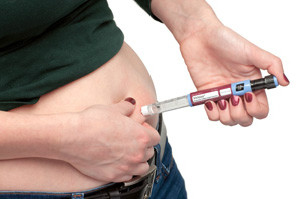
7. Drug update |
 Protective effect of Empagliflozin proven
Protective effect of Empagliflozin proven
![]() A recent study shows that empagliflozin may be pivotal role in preserving beta cell regeneration and improving blood glucose control in type 1 diabetes patients.
Researchers conducted an animal model experiment with 10-week-old mice in which type 1 diabetes was induced using injections of streptozotocin. The mice were given empagliflozin 3 mg/kg, empagliflozin 10 mg/kg, or placebo orally once daily for 8 days. The results of the study showed that mice treated with empagliflozin showed significantly improved glucose tolerance. The study also found that these mice also required lower doses of insulin, thus putting them at lower risk of hypoglycemia. The most interesting result from the study was that both mRNA and serum insulin levels in type 1 diabetes mice were significantly higher after 8 day treatment with empagliflozin.
These effects may, probably be due to a reduction in apoptosis and reactive oxygen species in the pancreatic β-cells. Taken together, the results of this study indicate that empagliflozin may have a beneficial effect on preserving β-cell regeneration, thus improving blood glucose homeostasis in type 1 diabetes mellitus, probably via the protection of pancreatic β-cell from glucotoxicity-induced oxidative stress.
A recent study shows that empagliflozin may be pivotal role in preserving beta cell regeneration and improving blood glucose control in type 1 diabetes patients.
Researchers conducted an animal model experiment with 10-week-old mice in which type 1 diabetes was induced using injections of streptozotocin. The mice were given empagliflozin 3 mg/kg, empagliflozin 10 mg/kg, or placebo orally once daily for 8 days. The results of the study showed that mice treated with empagliflozin showed significantly improved glucose tolerance. The study also found that these mice also required lower doses of insulin, thus putting them at lower risk of hypoglycemia. The most interesting result from the study was that both mRNA and serum insulin levels in type 1 diabetes mice were significantly higher after 8 day treatment with empagliflozin.
These effects may, probably be due to a reduction in apoptosis and reactive oxygen species in the pancreatic β-cells. Taken together, the results of this study indicate that empagliflozin may have a beneficial effect on preserving β-cell regeneration, thus improving blood glucose homeostasis in type 1 diabetes mellitus, probably via the protection of pancreatic β-cell from glucotoxicity-induced oxidative stress.
7. Victoza linked to benefits in selected type 1 diabetes subjects
In one of the studies with Liraglutide (Victoza), addition of 1.2 mg and 1.8 mg liraglutide to insulin over a 12-week period in overweight and obese patients with T1D resulted in modest reductions of weekly mean glucose levels with significant weight loss and small insulin dose reductions.
![]() 72 patients (placebo = 18, liraglutide = 54) with T1D received placebo and 0.6, 1.2, and 1.8 mg liraglutide daily for 12 weeks. In the 1.2-mg and 1.8-mg groups, the mean weekly reduction in average blood glucose was 10 ± 2 mg/dL and 10 ± 1 mg/dL), respectively (P < 0.0001), while it remained unchanged in the 0.6-mg and placebo groups. In the 1.2-mg group, HbA1c fell significantly (−0.78 ± 0.15%,)while it did not in the 1.8-mg group (−0.42 ± 0.15%, and 0.6-mg group (−0.26 ± 0.17%) vs. the placebo group (−0.3 ± 0.15%).
72 patients (placebo = 18, liraglutide = 54) with T1D received placebo and 0.6, 1.2, and 1.8 mg liraglutide daily for 12 weeks. In the 1.2-mg and 1.8-mg groups, the mean weekly reduction in average blood glucose was 10 ± 2 mg/dL and 10 ± 1 mg/dL), respectively (P < 0.0001), while it remained unchanged in the 0.6-mg and placebo groups. In the 1.2-mg group, HbA1c fell significantly (−0.78 ± 0.15%,)while it did not in the 1.8-mg group (−0.42 ± 0.15%, and 0.6-mg group (−0.26 ± 0.17%) vs. the placebo group (−0.3 ± 0.15%).
![]() Glycemic variability was reduced by 5 ± 1% (P < 0.01) in the 1.2-mg group only. Total daily insulin dose fell significantly only in the 1.2-mg and 1.8-mg groups (P < 0.05). There was a 5 ± 1 kg weight loss in the two higher-dose groups (P < 0.05) and by 2.7 ± 0.6 kg (P < 0.01) in the 0.6-mg group vs. none in the placebo group.
Glycemic variability was reduced by 5 ± 1% (P < 0.01) in the 1.2-mg group only. Total daily insulin dose fell significantly only in the 1.2-mg and 1.8-mg groups (P < 0.05). There was a 5 ± 1 kg weight loss in the two higher-dose groups (P < 0.05) and by 2.7 ± 0.6 kg (P < 0.01) in the 0.6-mg group vs. none in the placebo group.
For enquiries info@jothydev.net.
Please visit: jothydev.net | research.jothydev.com | diabscreenkerala.net | jothydev.com/newsletter
